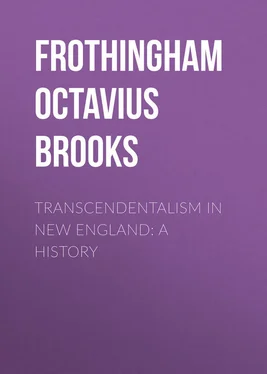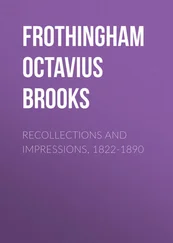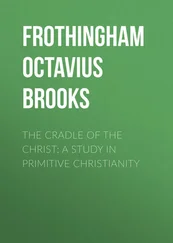Octavius Frothingham - Transcendentalism in New England - A History
Здесь есть возможность читать онлайн «Octavius Frothingham - Transcendentalism in New England - A History» — ознакомительный отрывок электронной книги совершенно бесплатно, а после прочтения отрывка купить полную версию. В некоторых случаях можно слушать аудио, скачать через торрент в формате fb2 и присутствует краткое содержание. Жанр: foreign_antique, foreign_prose, на английском языке. Описание произведения, (предисловие) а так же отзывы посетителей доступны на портале библиотеки ЛибКат.
- Название:Transcendentalism in New England: A History
- Автор:
- Жанр:
- Год:неизвестен
- ISBN:нет данных
- Рейтинг книги:4 / 5. Голосов: 1
-
Избранное:Добавить в избранное
- Отзывы:
-
Ваша оценка:
- 80
- 1
- 2
- 3
- 4
- 5
Transcendentalism in New England: A History: краткое содержание, описание и аннотация
Предлагаем к чтению аннотацию, описание, краткое содержание или предисловие (зависит от того, что написал сам автор книги «Transcendentalism in New England: A History»). Если вы не нашли необходимую информацию о книге — напишите в комментариях, мы постараемся отыскать её.
Transcendentalism in New England: A History — читать онлайн ознакомительный отрывок
Ниже представлен текст книги, разбитый по страницам. Система сохранения места последней прочитанной страницы, позволяет с удобством читать онлайн бесплатно книгу «Transcendentalism in New England: A History», без необходимости каждый раз заново искать на чём Вы остановились. Поставьте закладку, и сможете в любой момент перейти на страницу, на которой закончили чтение.
Интервал:
Закладка:
Fichte was a sublime egoist. In his view, the mind was sovereign and absolute, capable of spontaneous, self-determined, originating action, having power to propose its own end and pursue its own freely-chosen course; a live intelligence, eagerly striving after self-development, to fulfil all the possibilities of its nature. Of one thing he was certain – the reality of the rational soul, and in that certainty lay the ground of his tremendous weight of assertion. His professional chair was a throne; his discourses were prophecies; his tone was the tone of an oracle. It made the blood burn to hear him; it makes the blood burn at this distance to read his printed words. To cite a few sentences from his writings in illustration of the man's way of dealing with the great problems of life, is almost a necessity. The following often-quoted but pregnant passage is from "The Destination of Man: " "I understand thee now, spirit sublime! I have found the organ by which to apprehend this reality, and probably all other. It is not knowledge, for knowledge can only demonstrate and establish itself; every kind of knowledge supposes some higher knowledge upon which it is founded; and of this ascent there is no end. It is faith, that voluntary repose in the ideas that naturally come to us, because through these only we can fulfil our destiny; which sets its seal on knowledge, and raises to conviction, to certainty, what, without it, might be sheer delusion. It is not knowledge, but a resolve to commit one's self to knowledge. No merely verbal distinction this, but a true and deep one, charged with momentous consequences to the whole character. All conviction is of faith, and proceeds from the heart, not from the understanding. Knowing this, I will enter into no controversy, for I foresee that in this way nothing can be gained. I will not endeavor, by reasoning, to press my conviction on others, nor will I be discouraged if such an attempt should fail. My mode of thinking I have adopted for myself, not for others, and to myself only need I justify it. Whoever has the same upright intention will also attain the same or a similar conviction, and without it that is impossible. Now that I know this, I know also from what point all culture of myself and others must proceed; from the will, and not from the understanding. Let but the first be steadily directed toward the good, the last will of itself apprehend the true. Should the last be exercised and developed, while the first remains neglected, nothing can result but a facility in vain and endless refinements of sophistry. In faith I possess the test of all truth and all conviction; truth originates in the conscience, and what contradicts its authority, or makes us unwilling or incapable of rendering obedience to it, is most certainly false, even should I be unable to discover the fallacies through which it is reached… What unity, what completeness and dignity, our human nature receives from this view! Our thought is not based on itself, independently of our instincts and inclinations. Man does not consist of two beings running parallel to each other; he is absolutely one. Our entire system of thought is founded on intuition; as is the heart of the individual, so is his knowledge."
"The everlasting world now rises before me more brightly, and the fundamental laws of its order are more clearly revealed to my mental vision. The will alone, lying hid from mortal eyes in the obscurest depths of the soul, is the first link in a chain of consequences that stretches through the invisible realm of spirit, as, in this terrestrial world, the action itself, a certain movement communicated to matter, is the first link in a material chain that encircles the whole system. The will is the effective cause, the living principle of the world of spirit, as motion is of the world of sense. The will is in itself a constituent part of the transcendental world. By my free determination I change and set in motion something in this transcendental world, and my energy gives birth to an effect that is new, permanent, and imperishable. Let this will find expression in a practical deed, and this deed belongs to the world of sense and produces effects according to the virtue it contains."
This is the stoical aspect of the doctrine. The softer side of it appears throughout the book that is entitled "The Way towards the Blessed Life." We quote a few passages from the many the eloquence whereof does no more than justice to the depth of sentiment:
"Full surely there is a blessedness beyond the grave for those who have already entered on it here, and in no other form than that wherein they know it here, at any moment. By mere burial man arrives not at bliss; and in the future life, throughout its whole infinite range, they will seek for happiness as vainly as they sought it here, who seek it in aught else than that which so closely surrounds them here – the Infinite."
"Religion consists herein, that man in his own person, with his own spiritual eye, immediately beholds and possesses God. This, however, is possible through pure independent thought alone; for only through this does man assume real personality, and this alone is the eye to which God becomes visible. Pure thought is itself the divine existence; and conversely, the divine existence, in its immediate essence, is nothing else than pure thought."
"The truly religious man conceives of his world as action, which, because it is his world, he alone creates, in which alone he can live and find satisfaction. This action he does not will for the sake of results in the world of sense; he is in no respect anxious in regard to results, for he lives in action simply as action; he wills it because it is the will of God in him, and his own peculiar portion in being."
"As to those in whom the will of God is not inwardly accomplished, – because there is no inward life in them, for they are altogether outward, – upon them the will of God is wrought as alone it can be; appearing at first sight bitter and ungracious, though in reality merciful and loving in the highest degree. To those who do not love God, all things must work together immediately for pain and torment, until, by means of the tribulation, they are led to salvation at last."
Language like this from less earnest lips might be deceptive; but from the lips of a teacher like Fichte it tells of the solid grandeurs that faithful men possess in the ideal creations of their souls; the habitableness of air-castles.
SCHELLING
The chief sources from which the transcendental philosophy came from Germany to America have been indicated. The traces of Jacobi and Fichte are broad and distinct on the mind of the New World. Of Schelling little need be said, for his works were not translated into English, and the French translation of the "Transcendental Idealism" was not announced till 1850, when the movement in New England was subsiding. His system was too abstract and technical in form to interest any but his countrymen. Coleridge was fascinated by it, and yielded to the fascination so far as to allow the thoughts of the German metaphysician to take possession of his mind; but for Coleridge, indeed, few English-speaking men would have known what the system was. Transcendentalism in New England was rather spiritual and practical than metaphysical. Jacobi and Fichte were both; it can scarcely be said that Schelling was either. His books were hard; his ideas underwent continual changes in detail; his speculative system was developed gradually in a long course of years. But for certain grandiose conceptions which had a charm for the imagination and fascinated the religious sentiment, his name need not be mentioned in this little incidental record at all. There was, however, in Schelling something that recalled the ideal side of Plato, more that suggested Plotinus, the neo-Platonists and Alexandrines, a mystical pantheistic quality that mingled well with the general elements of Idealism, and gave atmosphere, as it were, to the tender feeling of Jacobi and the heroic will of Fichte.
Читать дальшеИнтервал:
Закладка:
Похожие книги на «Transcendentalism in New England: A History»
Представляем Вашему вниманию похожие книги на «Transcendentalism in New England: A History» списком для выбора. Мы отобрали схожую по названию и смыслу литературу в надежде предоставить читателям больше вариантов отыскать новые, интересные, ещё непрочитанные произведения.
Обсуждение, отзывы о книге «Transcendentalism in New England: A History» и просто собственные мнения читателей. Оставьте ваши комментарии, напишите, что Вы думаете о произведении, его смысле или главных героях. Укажите что конкретно понравилось, а что нет, и почему Вы так считаете.












